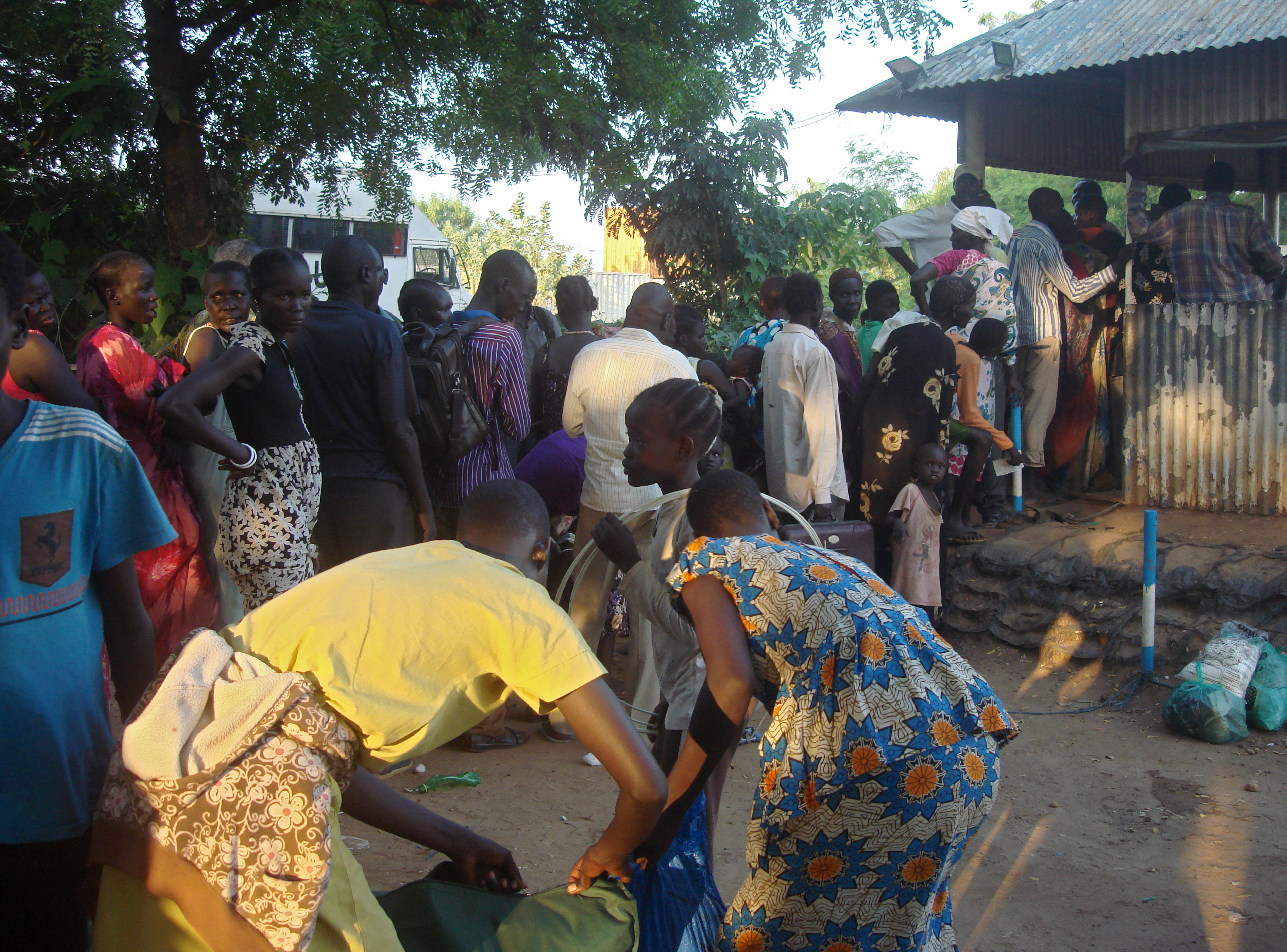JUBA, South Sudan — Felix Abdalla has been in a makeshift refugee camp at St. Joseph Catholic School here since last weekend, after fleeing with his wife and sister when fighting erupted between government and rebel troops in this capital city.
Abdalla, 35, said supplies are scarce at the shelter, including the lack of drinking cups, as thousands of South Sudanese try to evacuate to escape more violence.
![AP SOUTH SUDAN SHOOTING I SSD [image : 87094156]](http://www.gannett-cdn.com/media/2016/07/14/USATODAY/USATODAY/636041085252210508-AP-South-Sudan-Shooting.jpg)
“We use our hands to take water and put it to the mouth of children for drinking,” he said Thursday.
Abdalla, a civil servant, lived in Khartoum, Sudan, before South Sudan gained its independence in 2011 following a bloody revolutionary war against Sudan. He had never been in a war zone until this past week, even though violence has wracked South Sudan in recent years as Vice President Riek Machar, a former rebel leader, has waged a campaign to topple the regime of President Salva Kiir.
![South Sudan president, former rebel leader call for cease-fire [oembed : 87097680] [oembed : 87097680] [oembed : 87097680] [oembed : 87097680]](/Portals/_default/Skins/PrestoLegacy/CommonCss/images/smartembed.png)
Both Kiir and Machar called for a cease-fire Monday, and it appears to be holding. But many South Sudanese fear that fighting will resume. Businesses, embassies and other foreign personnel have been evacuating Juba. And the United States announced this week it would send troops to protects its embassy.
“The sound of the guns was scary,” said Abdalla, one of about 2,000 people staying at the school. “I have not heard of such before. I lost hope in the fighting. It was unbelievable.”
Forces loyal to both sides renewed fighting last week, resulting in 272 deaths that included 33 civilians, even though Kiir and Machar had reached a peace deal in 2015 after a two-year war that killed thousands and displaced 2.2 million people.
![South Sudan president, former rebel leader call for cease-fire [oembed : 87097680] [oembed : 87097680] [oembed : 87097680] [oembed : 87097680]](/Portals/_default/Skins/PrestoLegacy/CommonCss/images/smartembed.png)
“The current situation in the country remains fluid and uncertain,” Hervé Ladsous, the United Nations under-secretary-general for peacekeeping operations, told the Security Council on Wednesday.
Ladsous asked for a one-month extension of the U.N. peacekeeping mission in South Sudan, which expires at the end of July.
It’s not clear why the shooting started.
Gunfights flared after a Machar spokesman wrote a Facebook post that said he was detained in the presidential palace when he was only attending a meeting, according to South Sudan’s ambassador to Kenya, a Kiir appointee. But Machar rejected that explanation. Local reports said disagreements between fighters at a road checkpoint led to the hostilities.
Around 36,000 people have fled their homes because of the recent violence, according to the United Nations. The impoverished country doesn’t have facilities to handle them, said Mahimbo Mdoe, UNICEF's representative in South Sudan.
![AFP 553943007 I CIU SOU [image : 87094228]](http://www.gannett-cdn.com/media/2016/07/14/USATODAY/USATODAY/636041085872470484-AFP-553943007.jpg)
“The people hit hardest by this fighting are struggling to cope in appalling conditions,” Modoe said. “They are desperate for water, food and in need of medical assistance.”
At the St. Joseph school, Okello Aba, 18, said he was separated from his parents during the fighting and now was barely surviving. “In my four days here, I have been given food, biscuits and water, though it’s not enough,” he said.
He believed his mother and father were at a church on the other side of the city. He was fearful and frustrated as he waited until the city was safe enough to go find them.
“Let this war stop,” Aba said. “We are tired of war. It has spoiled my studies. I urge the leaders to implement the peace agreement they signed. What is important now is life for me and to reunite with my parents.”
Jackline Juma, 22, at the school with her three children, said Kiir and Machar should do more to safeguard their year-old peace agreement. She and her husband fled to Khartoum during the revolutionary war, but returned after independence. Her husband died in 2013 when caught in the crossfire during the civil war.
Since then, Juma has struggled to make a living. Now, she’s fearful and angry that she’s a refugee in her own country.
“I am afraid for the lives of my children and myself,” she said. “This war should be the last war. If there is a way, it would be better to go back to Khartoum and work as servants — wash clothes and dishes, then get paid at the end of the month — unlike here.”
![South Sudan Overview [oembed : 87096860] [oembed : 87096860] [oembed : 87096860] [oembed : 87096860]](/Portals/_default/Skins/PrestoLegacy/CommonCss/images/smartembed.png)


![XXX _EXIF_JPEG_420_11661.JPG [image : 87094330]](http://www.gannett-cdn.com/media/2016/07/14/USATODAY/USATODAY/636041086407709915-XXX-Exif-JPEG-420-11661.JPG)
